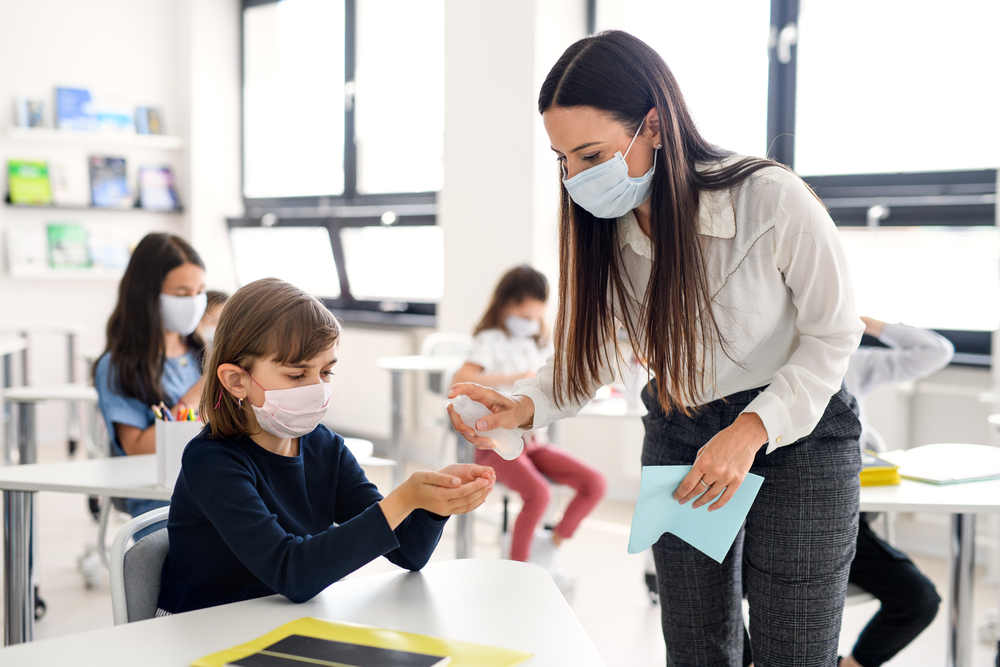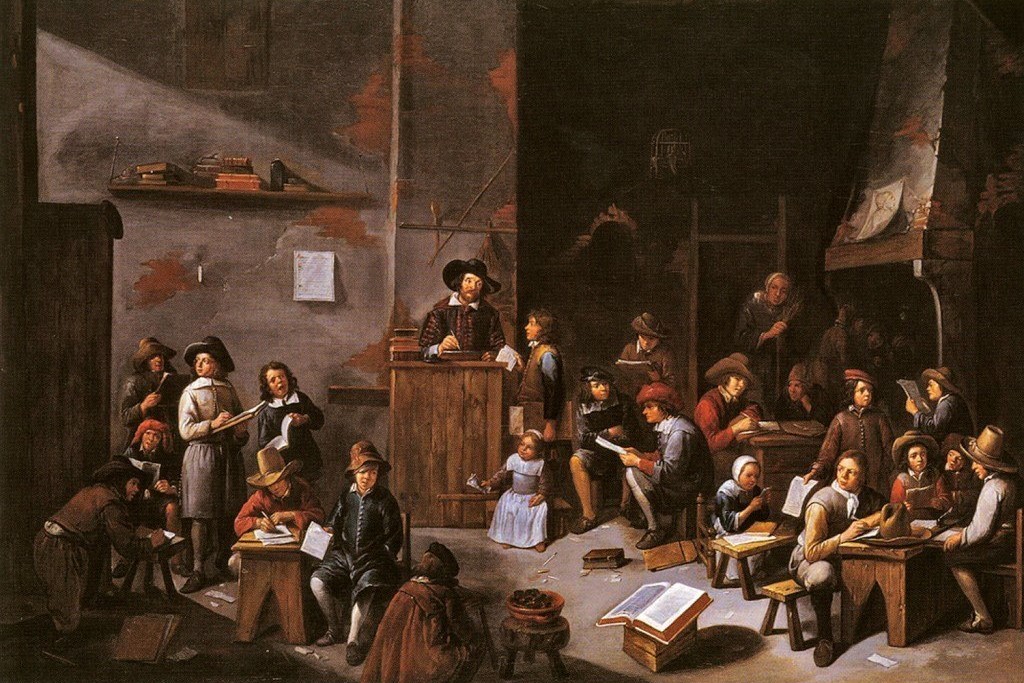Essential Work, Education, and Human Values

On August 21st, the White House released guidance that designated teachers as “essential workers.” One of the things that this means is that teachers can return to work even if they know they’ve been exposed to the virus, provided that they remain asymptomatic. This is not the first time that the Trump administration has declared certain workers or, more accurately, certain work to be essential. Early in the pandemic, as the country experienced decline in the availability of meat, President Trump issued an executive order proclaiming that slaughterhouses were essential businesses. The result was that they did not have to comply with quarantine ordinances and could, and were expected to, remain open. Employees then had to choose between risking their health or losing their jobs. Ultimately, slaughterhouses became flash points for massive coronavirus outbreaks across the country.
As we think about the kinds of services that should be available during the pandemic, it will be useful to ask ourselves, what does it mean to say that work is essential? What does it mean to say that certain kinds of workers are essential? Are these two different ways of asking the same question or are they properly understood as distinct?
It might be helpful to walk the question back a bit. What is work? Is work, by definition, effort put forward by a person? Does it make sense to say that machines engage in work? If I rely on my calculator to do basic arithmetic because I’m unwilling to exert the effort, am I speaking loosely when I say that my calculator has “done all the work”? It matters because we want to know whether our concept of essential work is inseparable from our concept of essential workers.
One way of thinking about work is as the fulfillment of a set of tasks. If this is the case, then human workers are not, strictly speaking, necessary for work to get done; some of it can be done by machines. During a pandemic, human work comes with risk. If the completion of some tasks is essential under these conditions, we need to think about whether those tasks can be done in other ways to reduce the risk. Of course, the downside of this is that once an institution has found other ways of getting things done, there is no longer any need for human employees in those domains on the other side of the pandemic.
Another way of understanding the concept of work is that work requires intentionality and a sense of purpose. In this way, a computer does not do work when it executes code, and a plant does not do work when it participates in photosynthesis. On this understanding of the concept of work, only persons can engage in it. One virtue of understanding work in this way is that it provides some insight into the indignity of losing one’s job. A person’s work is a creative act that makes the world different from the way it was before. Every person does work, and the work that each individual does is an important part of who that person is. If this way of understanding work is correct, then work has a strong moral component and when we craft policy related to it, we are obligated to keep that in mind.
It’s also important to think about what we mean when we say that certain kinds of work are essential. The most straightforward interpretation is to say that essential work is work that we can’t live without. If this is the case, most forms of labor won’t count as essential. Neither schools nor meat are essential in this sense — we can live without both meat and education.
When people say that certain work is essential, they tend to mean something else. For some political figures, “essential” might mean “necessary for my success in the upcoming election.” Those without political aspirations often mean something different too, something like “necessary for maintaining critical human values.” Some work is important because it does something more than keep us alive; it provides the conditions under which our lives feel to us as if they are valuable and worth living.
Currently, many people are arguing for the position that society simply cannot function without opening schools. Even a brief glance at history demonstrates that this is empirically false. The system of education that we have now is comparatively young, as are our attitudes regarding the conditions under which education is appropriate. For example, for much of human history, education was viewed as inappropriate for girls and women. In the 1600’s Anna Maria van Schurman, famous child prodigy, was allowed to attend school at the University of Utrecht only on the condition that she do so behind a barrier — not to protect her from COVID-19 infested droplets, but to keep her very presence from distracting the male students. At various points in history, education was viewed as inappropriate for members of the wealthiest families — after all, as they saw it, learning to do things is for people that actually need to work. There were also segments of the population that for reasons of race or status were not allowed access to education. All of this is just to say that for most of recorded history, it hasn’t been the case that the entire population of children has been in school for seven hours a day. Our current system of K-12 education didn’t exist until the 1930s, and even then there were barriers to full participation.
That said, the fact that such a large number of children in our country have access to education certainly constitutes significant progress. Education isn’t essential in the first sense that we explored, but it is essential in the second. It is critical for the realization of important values. It contributes to human flourishing and to a sense of meaning in life. It leads to innovation and growth. It contributes to the development of art and culture. It develops well-informed citizens that are in a better position to participate in democratic institutions, providing us with the best hope of solving pressing world problems. We won’t die if we press pause for an extended period of time on formal education, but we might suffer.
Education is the kind of essential work for which essential workers are required. It is work that goes beyond simply checking off boxes on a list of tasks. It involves a strong knowledge base, but also important skills such as the ability to connect with students and to understand and react appropriately when learning isn’t occurring. These jobs can’t be done well when those doing them either aren’t safe or don’t feel safe. The primary responsibilities of these essential workers can be satisfied across a variety of presentation formats, including online formats.
In our current economy, childcare is also essential work, and there are unique skills and abilities that make for a successful childcare provider. These workers are not responsible for promoting the same societal values as educators. Instead, the focus of this work is to see to it that, for the duration of care, children are physically and psychologically safe.
If we insist that teachers are essential workers, we should avoid ambiguity. We should insist on a coherent answer to the question essential for what? If the answer is education, then teachers, as essential workers, can do their essential work in ways that keep them safe. If we are also thinking of them as caregivers, we should be straightforward about that point. The only fair thing to do once that is out in the open is to start paying them for doing more than one job.




